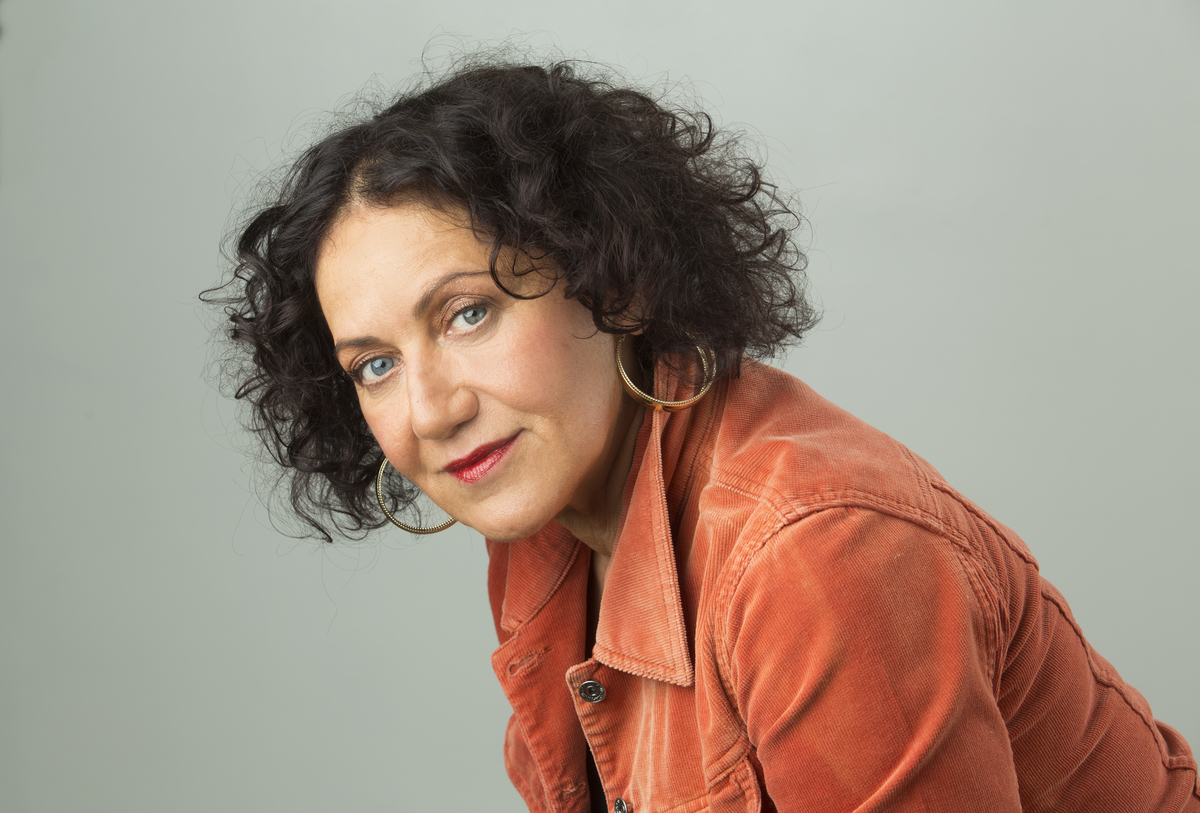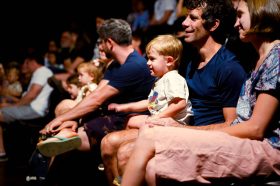On Thursday 7 July, Rachel Berger will play host to a very different kind of comedy night at Melbourne’s Peter MacCallum Cancer Centre (aka the Peter Mac). All the participants of Stand Up For Cancer will be cancer patients from the centre. Each will complete a comedy workshop with Berger earlier that day and will draw on their personal experiences for a series of five-minute performances.
In a statement, Peter Mac’s Director of Prevention and Wellbeing Geri McDonald said the Centre expects participants to get something valuable out of the experience. ‘Everybody responds to cancer differently. For some people, humour is an attractive way to process what’s happening and they want to explore new ways of talking about their cancer experience,’ she said.
A seasoned stand-up comic, Berger initially became interested in leading workshops when she was doing corporate gigs and undertaking research with employees at every company before each performance. While some comedians doing these shows may just ask for the boss’s name to throw into a joke, Berger would conduct more in-depth discussions about the culture of each workplace. During these interviews, she discovered something interesting. ‘People would reveal things [to a comedian] that they wouldn’t normally reveal because I’d always do it through a funny lens,’ she said.
Armed with this new perspective, Berger became increasingly interested in comedy’s therapeutic possibilities. She started running small group workshops for vulnerable communities, like people living with mental health conditions or youths experiencing homelessness. The skills she’d developed in comedy clubs and festivals had an unexpected application, and the casual, confessional nature of the art form allowed people to find new ways to tell their stories, illuminate the frustrations of their experiences, and process what they were going through.
When comedy meets trauma
The idea of stand-up comedy fitting into a wellbeing program may seem surprising, but there’s a growing body of evidence that it can play a serious role in improving the lives of people experiencing trauma. Berger points to UK comedian Angie Belcher, founder of Comedy on Referral, who recently received National Health Service funding to teach her stand-up comedy workshops to help men identified as at risk of suicide, as another example of this trend.
The child of parents who fled Nazi-occupied Poland, Berger had seen first-hand the unexpected and curative role that comedy played in their lives. Her father and many of his friends had missing limbs but found gallows humour in their plight, even mischievously hiding each other’s prostheses.
Similarly, she recently spoke to a retired Lieutenant Colonel who described how he’d been ‘medicating on stand-up’, drawing on the storytelling power of comedy to revisit some of his life’s most intense and traumatic chapters.
Read: New dementia program piloted by Canberra Symphony
Dr Maria Ftanou, Director of Psychosocial Oncology at Peter Mac Cancer Centre, says humour may have untapped potential to improve the mental health of patients.
‘A growing body of evidence in oncology suggests that for some people, humour relieves stress, reduces anxiety, facilitates improved communication with health care professionals, builds social connections and is an important strategy used to cope with the ups and downs of cancer and its treatments,’ Ftanou said.
One of the most intriguing aspects of stand-up comedy for people who have experienced illness or trauma is the evidence it can reduce anxiety and stress. Often, there’s a perception that getting up on stage and trying to make people laugh is one of the most anxiety-inducing things a person can do. Performing any comedy is hard enough, so how do the participants navigate the nerves of doing it for the first time while telling an intensely personal story?
The key, Berger says, is managing expectations and communicating to the participants that they’re in a supportive environment. Everybody in the workshop has chosen to tell their story, she reminds them, and nobody in the audience expects Comedy Festival levels of slickness or performance skills. There are also ways Berger can structure the day to make the experience less nerve-wracking; ideally, for instance, she will run the workshop in the same location where the performance takes place, meaning the budding comics are familiar with the room by the time they perform.

Berger said those that go through the workshop are ‘generally terrified’ of the closing performance, but nobody has ever not gone through with delivering their routine. Often people surprise themselves with how well they perform.
‘It’s often the people that are most inhibited but that really want to do it that are the most funny because they’re the most authentic,’ she said.
Another common hurdle many beginner comics face is the difficulty in breaking away from their influences and finding their own voice. Berger says the workshop participants bypass this pitfall as they build a routine not based on other comedians but on their own answers to specific questions about their experiences. Such questions can include their current annoyances, or someone who had an impact on them growing up. ‘There’s no space to put a [persona] on,’ Berger said. ‘The questions are very simple but very personal. When people go into their own memories, they generally don’t mimic.’
Not only do the participants in a workshop like this get the liberating opportunity to tell their story on their terms, they often forge much closer connections to their peers over the course of the day, Berger says. ‘They’ve gone through this massive experience. They’ve been there for each other all day, they’ve seen each other go from nothing to triumph on stage.’
Often, the audience’s response to the performance is rousing. ‘People often get standing ovations, not because they’re hilariously funny but because they’re vulnerable and authentic. If they’re funny on top of that, that’s unbelievable, and it touches everyone.’
Berger is quick to point out that she isn’t a therapist nor an expert in the science behind how comedy can help someone process trauma. But she says there’s a kind of alchemy that can happen through the workshops that’s undeniable.
‘At the end of this, people’s cancer isn’t going to be cured and their mental health issues aren’t going to go away. But when people are laughing with you and not at you, it’s transformative.’
Stand Up For Cancer takes place on Thursday 7 July at Peter Mac (305 Grattan Street, Melbourne) in the Level 7 lecture theatre.





